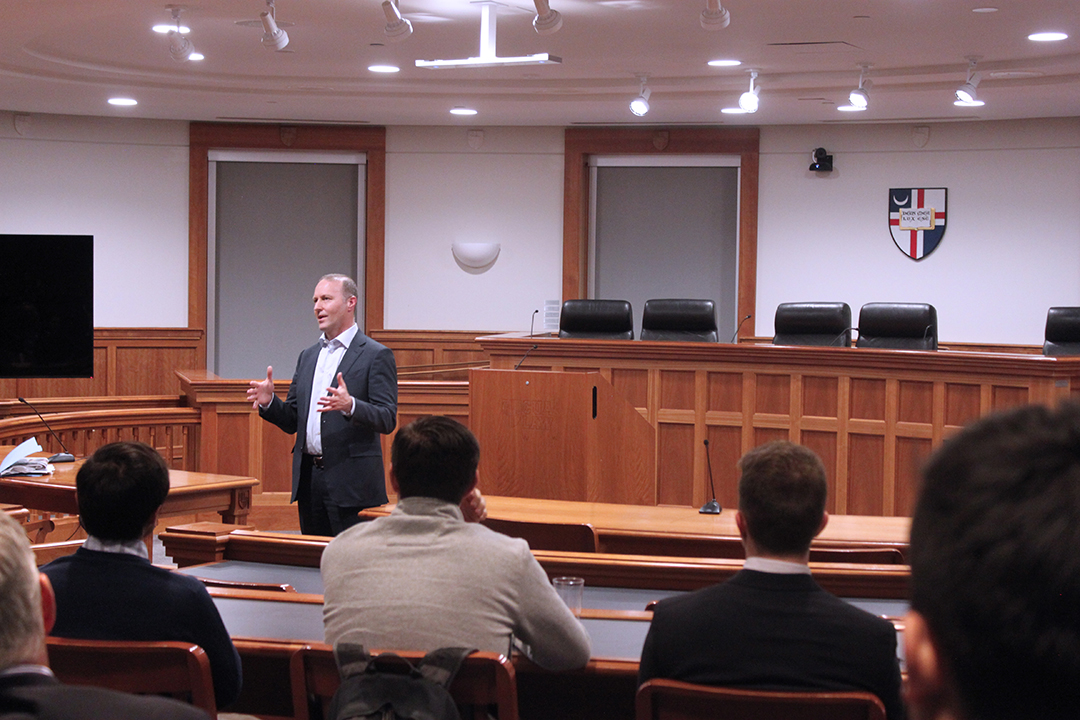March 25, 2019

The bond market is not as automated as the equity market. Professor David Lipton, Director of the Securities Law Program, predicted that Concannon, who has come in on the ground level of nearly every major market innovation in the past twenty years, would be rapidly expanding the practice of electronic trading of bonds. Lipton explained that Concannon, who was a student at CUA in the Securities Law Program, wrote a paper on disclosure of order flow payment which became the basis of the order flow rule in today's National Market System.
Concannon opened his lecture by explaining, in any market, there is not always an immediate buyer bid available for each seller and visa versa. As a consequence, markets have historically relied upon dealers to step between the highest bid price and the lowest offer price. In other words, the dealer, is the party who typically, put up his or her capital, to even out the volatility of the trading markets. He also explained the ongoing market tension of keeping a dealer interested in the market while protecting investors.
"How do you create price consistently in the market and have investors not disadvantaged? Our markets are a balancing act of how we reward the dealers and how we protect the investors. The moral of the story is that it will never be fair," But, in order to attract order flow, most markets pay brokers to send their orders to them to help promote constant existence of buy and sell orders.
At the same time, markets make money by selling transaction information to large computerized investors who want to be able to get their order to the market before other investors. Concannon said "[t]here is a notion of elasticity. Everyone has to buy data and become a member of the exchange. This rule [the National Market System] that gave us great benefits [with electronic markets] and altered the way the market works also left unintended consequences with the ability to overcharge for data," he said.
 In discussing the value of his law degree, Concannon told students that a law degree is extremely useful when working in the financial industry. "We live in a hyper regulated market, and I use my law degree on a regular basis. Having a legal background in the financial industry is very valuable."
In discussing the value of his law degree, Concannon told students that a law degree is extremely useful when working in the financial industry. "We live in a hyper regulated market, and I use my law degree on a regular basis. Having a legal background in the financial industry is very valuable."The audience also had a chance to ask questions regarding the lecture. Following the event, the students along with the speaker attended a reception in the atrium where the conversation continued.
